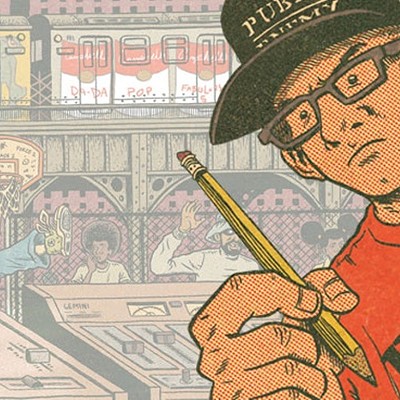Walk into Carnegie Mellon's School of Music on a Saturday afternoon, and you'll see a steady stream of youngsters walking to and from music lessons with their parents. Most of the kids are Asian.
Bruce Brubaker -- a Juilliard grad who chairs the piano department at New England Conservatory -- has a theory about what that picture represents culturally.
"There's a wave of conservatism in classical music, which has one meaning for Americans, but for those in Korea and China signifies another position," he says. "The level of physical ability has gone up, but they see nothing wrong with playing Beethoven over and over again. The elite level of training is no longer available to those who want to do something progressive. No one considers how musicians hear, think, improvise and speak about what they do."
Brubaker says the contemporary New Music realm is in a different quandary than in the '70s, when composers rebelled against academia to form outsider groups, such as the Pittsburgh New Music Ensemble or Philly's Relâche. "In American classical music, we went through this period pursuing things that weren't appealing to large audiences. Now, composers use involvement with popular music as legitimization."
Brubaker concurs with my example of wünderkind Nico Muhly, who's worked with Philip Glass and Björk, and he admits to getting e-mails from people who listen to his CDs who also like Radiohead and Vampire Weekend.
"I started out as a classical player, but I've made several recordings of American minimalist music -- Glass, Alvin Curran, William Duckworth," adds Brubaker. "It's descended from classical music, but at the same time it involves a lot of listening. Some people aren't interested in Mozart, and that's fine."
To that end, Brubaker brings an eclectic program to the heart of an intrinsically classical music institution. His free concert at 8 p.m. Tue., Oct. 27, at CMU's Kresge Auditorium, is followed by a Q&A session. He'll bounce between Philip Glass' "Mad Rush," and works by Alvin Lucier ("he takes an old Beatles song and recycles it") and Curran ("a hyper-minimalist work focusing on one harmony, and a marathon of technical difficulty"). And he'll range to chestnuts like a Haydn sonata and a Chopin polonaise.
"The piano is a tool that can be used in different ways," he says. "Classical music can be taken as material for new art; we don't have to preserve it in amber. When you put an addition on an old Gothic church, do you build it in the exact style of the old building? We've developed this sacred attitude about music, and it's ultimately not so helpful."
For more information about the concert, call 412-268-2383 or visit www.music.cmu.edu.













